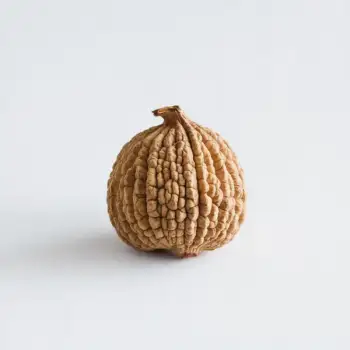


Whole nutmeg
The seed of the nutmeg tree, typically sold with its hard shell intact. Grating fresh nutmeg at the time of use ensures the most potent flavor and aroma.
Ground nutmeg
Nutmeg seeds that have been ground into a fine powder. While convenient, ground nutmeg loses its potency faster than whole nutmeg.




whole nutmeg: McCormick Gourmet
ground nutmeg: Simply Organic

Grating: Fresh nutmeg should be grated using a microplane or fine grater to release its essential oils and full aroma. This technique is ideal for when you want a burst of nutmeg flavor without altering the texture of the dish.
Infusing: Nutmeg can be infused into liquids such as milk, cream, or custard bases to impart its flavor subtly. This is commonly done when making sauces, beverages, or desserts like custard and eggnog.
Toasting: To enhance nutmeg's flavor, you can lightly toast the whole seed in a dry pan before grating. This method intensifies the spice's warm notes and is perfect for dishes where nutmeg is a key ingredient.













